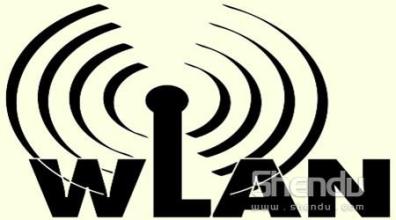汉语的委婉语内涵丰富、数量庞大,而英语也有自己的一套委婉语文化。比如,人们忌说stupid or lazy students(愚笨或懒惰的学生),而说underachievers(未充分发挥出自己潜力的学生);也讳言poor(穷),而说needy(拮据)、underprivileged(经济状况低下);不说steal(偷),而说take other people's things without permission(未经许可拿了别人的东西),英语的委婉,你懂吗?
总有些时候我们必须说不,但如何说才能不使别人不快呢? 英语中这样委婉地拒绝:
1. I can't right now, but maybe later.
我现在办不了,过会儿再看吧。
这意味着将来可能行。
2. Unfortunately, I've had a few things come up.
不好意思,我手头有一些事情要处理。
这是指有意外的事情发生了。
3. I'm trying to focus on finishing off some other things.
我正忙着处理一些其它的事情呢。
这是表示你有一些没有完成的工作的另一种表达方式。
4. I can't at the moment, but I'm happy to help you with something else later.
这会儿我帮不上忙,不过以后有事我很愿意帮你。
这是一种非常礼貌的方式。你虽然拒绝了但是却提供对其它事的帮助。
5. Sorry but that isn't my strong suit.
不好意思,那个不是我的强项。
这是表示你并不擅长此道。
6. I'm sure you will do fine on your own.
我相信你自己可以做好的。
这是告诉别人自己完成此事的一种非常礼貌的方式。
7. I'm afraid I'm committed to something else.
我有别的事情要做。
如果你另有计划可以这么说。
8. I'm sorry, but I have an emergency to attend to.
不好意思,我有个急事要处理。
既然有些紧急的事必须要做,自然无法帮别人的忙了。
我们中国人通常都很忌讳说"死"这个字,古代按照等级的划分有"天子死曰崩,诸侯死曰薨,大夫死曰卒,士曰不禄,庶人曰死"的说法,现在我们会说一个人"离开了我们"、"走了"等。英语同样忌言"死",虽然有die这个词,但口语中人们一般不用 die来直说死亡。
pass away和pass on都是暗指过世。例:Sadly, Georgia's uncle passed away yesterday after a short illness(真伤心,乔治亚的叔叔昨天得了一场急病去世了);I'm sorry to learn that your dear mother has just passed on(很遗憾听到你妈妈刚刚去世的消息)。
lose one's life一般指由于意外事故、战争等不可抗力而造成的死亡,为意外死亡。例:How did he lose his life(他是怎么死的)?
depart也是死亡的委婉说法,主要用于短语depart this life/depart this earth,意思是灵魂离开了肉体的存在去往另一个世界了。例:He departed this world with a sense of having fulfilled his destiny(他带着一种已完成使命的满足感离开了这个世界)。
expire的意思是呼气,这里引申为呼出最后一口气,暗指死亡。例:The patient expired early this morning(这位病人今天早晨去世了)。
perish多指非自然死亡。例:Many soldiers perish in battle(很多士兵死于战争)。
go to meet one's Maker也是死亡的委婉说法,注意这里Maker要大写,是造物主的意思,去见造物主了就是死了。例:He knew that he came into the world with nothing and that he would go to meet his Maker with empty hands(他知道他是一无所有地来到世上,也将会两手空空地离开人间)。
其他英语中常用的"过世"的委婉说法还有:
His time has come.
He has climbed the golden staircase.
He is sleeping the final sleep.
He is resting in peace.
He has breathed his last.
He answered the last number.
He has joined the angels.

英语中直接表达怀孕的词是pregnant,不过在大多数情况下,对于女性"怀孕"也不会直接说"pregnant"这个字,而是绕着弯子说,好比中文里我们用"有了"来指代"怀孕"。
英语里谈到怀孕可以这样说:She is "expecting"(她在"待产"中);She is "in a delicate condition"(她正"怀孕中");She is "well-along"(她"心满意足");She is about to have a "blessed event"(她不久会有"喜事");She is about to be "in a family way"(她不久就要走向"家庭之路");She is six months gone(她已有六个月的身孕);She has a bun in the oven(她身怀六甲)。
还可以使用这些表达:
a mother-to-be
eating for two
lady-in-waiting
to have a hump in the front
to have one on the way
to learn all about diaper folding
to wear the apron high
waiting for the patter of little feet
with child (注意:没有冠词)
另外,虽然同是"怀孕", 但未婚的女性在不希望的情形下怀孕时,就说:She is "in trouble"(她"有了麻烦")。
直接说"我要上厕所"似乎也没什么,但总让人觉得有点不够文雅,尤其是对女生来说。在中文里,我们有不少这方面的委婉说法,比如"方便一下","去洗手间"等等,在英文中,这类委婉语也是很多的。
比如,to wash one's hand(去洗手或净手)、to powder one's nose(给鼻子搽粉,女士用语)、to spend a penny(花一个便士)、to go and see one's aunt(去见阿姨)、to pay a call(拜访)、to relieve or to relieve nature(去空身)、to go somewhere(到什么地方去一下)、to answer the call of nature or to answer nature's call(响应自然的召唤)、to have a BM(=bowel movement大便)等。在一个聚会或其他活动中,还可以用Will you excuse me for a few minutes?(请让我离开一会儿好吗?)学生上着课要去厕所,也可以说May I be excused?(我可以离开吗?)有时个别年纪大的女士在这种情况下还会说:I need to make a pit stop。其实pit stop是指在赛车过程中,赛车在途中紧急停留加油、维修的地方。看来,她们肯定将解决问题看作是一种"紧急维修"了。
 爱华网
爱华网



